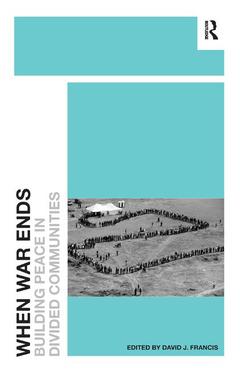When War Ends Building Peace in Divided Communities
Coordonnateur : Francis David J.

Date de parution : 05-2012
15.6x23.4 cm
Date de parution : 11-2016
15.6x23.4 cm
Thème de When War Ends :
Mots-clés :
Independent National Electoral Commission; liberal; Socioeconomic Development; peacebuilding; DDR Process; peace; Mulago National Referral Hospital; Roland Paris; Togolese Republic; Willemijn Verkoren; Socio-economic Development; Gerd Junne; Liberal Peacebuilding; Oscar Mateos; Human Development Index; Bryan Crawford-Garrett; Ivory Coast; Carla Castañeda; Postwar Peacebuilding; Mohamed Kanu; Liberal Peacebuilding Interventions; Mohamed C; Kamanda; PRSP Framework; M.A; Mohamed Salih; EU Agency; Postconflict Peacebuilding; Sierra Leonean Peace Process; Civil Society; Post-settlement Peacebuilding; Civil War Peace Settlement; Liberal Peace; Peacebuilding Operations; Security Sector Review; Peace Education; Transform Teaching Methods; ECOMOG Force; Peacebuilding Missions



